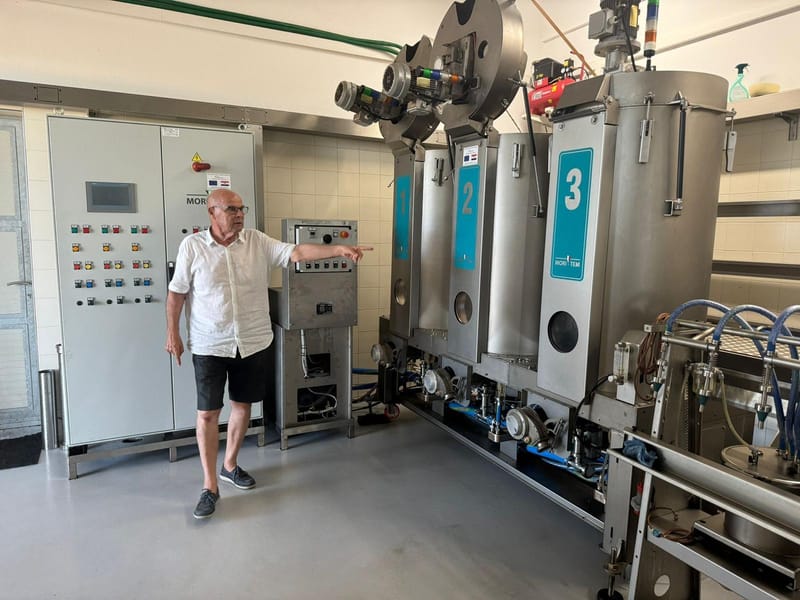Full production control

Full in-house production control is achieved from our state-of-the-art processing facility. The Lepur family process oil from their own grove and from olive growers across the region with the latest Mori-Tem machinery.
It has been widely publicised that over 50% of olive oil products sold do not contain EVOO as stated on the bottle, resulting in a huge issue of fraud in the olive oil industry. Fraudulent oils are bland tasting and do not have the strength and depth of flavour of high polyphenol oils. Tasting Lepur oil immediately distinguishes its quality, with the reassurance of certification.
Full ownership of the end-to-end process from growing, production and retail enables us to ensure the highest quality and efficiency at every stage, resulting in superior products.
Every step is monitored, inspected by the authorities and the oils independently analysed. The production of olive oil involves these key steps:
1. Harvesting: Olives are picked from early harvest to peak ripeness, either by hand or mechanically.
2. Cleaning: The olives are washed to remove dirt and debris.
3. Chopping: The olives, including pits, are crushed into a paste to release the oil.
4. Malaxation: The paste is slowly mixed to help oil droplets combine.
5. Extraction: The oil is separated from the paste using either a press or a centrifuge.
6. Filtration: The oil may be filtered to remove impurities, though some oils are left unfiltered.
7. Storage: The oil is stored in stainless steel tanks and compressed under argon to protect all its properties until bottling.
8. Bottling: The olive oil is bottled, labelled and shipped to the end user, typically in dark containers to protect from light and preserve natural properties.